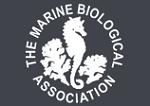APHOTOMARINE
An educational resource dedicated mainly to the photography
and diversity of marine life that can be found in coastal waters
and intertidal areas of Great Britain and Ireland by David Fenwick.

Polyides rotunda
- in lowershore pool 1
Discoid Fork Weed
Polyides rotunda
- in lowershore pool 2
Discoid Fork Weed
Polyides rotunda
- in shallow lowershore pool 1
Discoid Fork Weed
Polyides rotunda
- carpeting sandy pool 1
Discoid Fork Weed
Polyides rotunda
- carpeting sandy pool 2
Discoid Fork Weed
Polyides rotunda
- tips close-up 1
Above images of specimens taken on the lowershore at Spit Point, near Par, St. Austell, Cornwall, 15.03.10; at Porthpean Beach near St. Austell, Cornwall, 01.04.10; at Albert Reef, Penzance, Cornwall. 18.04.14.
Discoid Fork Weed
Polyides rotunda
- thallus with sporulating tips 1
Discoid Fork Weed
Polyides rotunda
- sporulating frond tips 1
Discoid Fork Weed
Polyides rotunda
- sporulating frond tips 2
Discoid Fork Weed
Polyides rotunda
- sporulating frond tips 3
Specimen above found on the lowershore on an extreme low tide at Albert Pier reef, Penzance, Cornwall. 22.01.15.
Scientific and European Names:
Polyides rotunda, Polyides rotundus, Discoid Fork Weed, Goat Tang, Forked Red Alga, Rote Gabelalge, Vertakt roodwier, Algue rouge dichotome, Alga roja dicotoma.
APHOTOMARINE supports open source data recording and sharing for the benefit of wildlife, recorders, research, science and education. The project recommends the following websites and works with the following bodies and organisations.
The Marine Biological Association or MBA, based in Plymouth, is one of the world’s longest-running societies dedicated to promoting research into our oceans and the life they support. Since 1884 the MBA has been providing a unified, clear, independent voice on behalf of the marine biological community.It has a growing membership in over 40 countries.
The National Biodiversity Network or NBN is a charity that supports open source data sharing and recording supporting conservation, science and education. "Why do recorders need open source?". Simply because it supports the core values of wildlife recording and the free use of records and data over a very wide network that includes partners like the Natural History Museum.
The taxonomy used here is based on that of the following database, which is also used by the MBA, NHM and the NBN.
The World Register of Marine Species or WoRMS.
AlgaeBase is a database of information on algae that includes terrestrial, marine and freshwater organisms.

